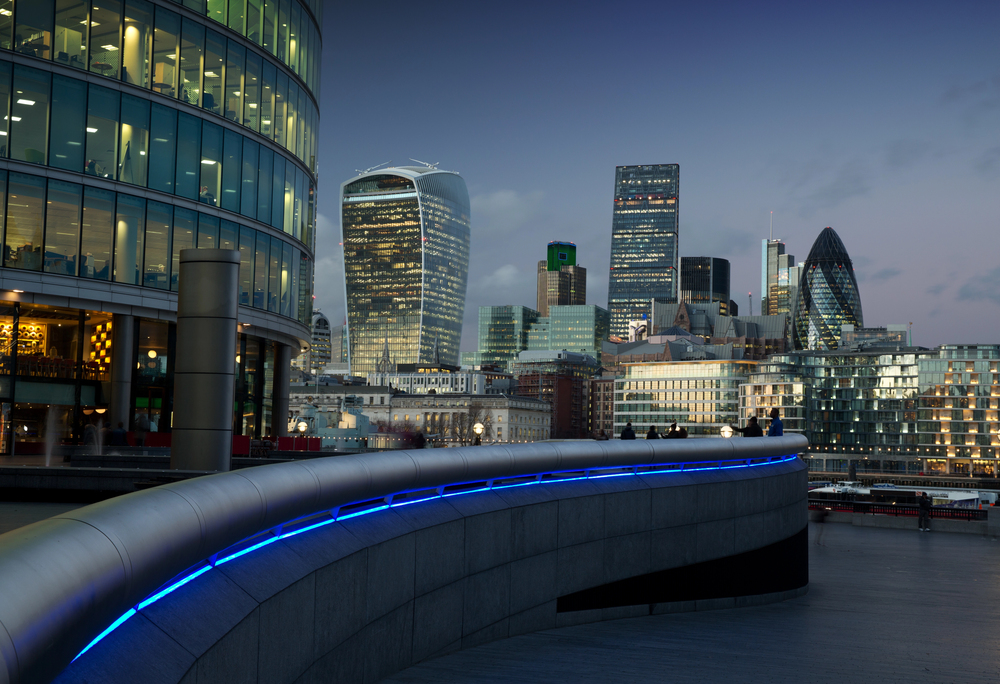The UK building industry is in trouble because of regulatory roadblocks that have stopped more than 150 high-rise projects. At the same time, the sudden end of the global Net Zero Banking Alliance shows that environmental promises are being put on hold as political changes happen. These two problems, one caused by safety improvements after Grenfell and the other by the pushback against ESG programs, put both housing goals and sustainable financing at risk. This article talks about the blocked high-rise projects, the Building Safety Regulator’s function, and the NZBA’s exit. It focusses on the economic effects of these events and the urgent need for balanced reforms.
Stalled Towers: A Blockage in Construction
There are more than 150 high-rise development projects in the UK that are stuck in limbo because of delays from the Building Safety Regulator (BSR). More than half of these projects are in London. The Construction Plant-hire Association (CPA), the UK’s largest trade group for renting out equipment, found that developers are waiting for approvals while their crane fleets and gear sit unused. Steven Mulholland, the head of the CPA, said that the industry was suffering its biggest drop in business since the Covid-19 outbreak and warned of a “downward spiral.” S&P data for August 2025 showed that activity had been going down for the eighth month in a row. That month, construction companies made up 15.2% of all business failures.
The Building Safety Act 2022, which was passed following the Grenfell Tower disaster in 2017 to make safety a top priority, is what caused the catastrophe. Now, high-rises that are more than 18 meters tall must have two escape staircases in case of an emergency. This rule has pushed back approval times from 12 weeks to up to a year. The CPA’s survey of crane operators and plant-hire companies found that these delays were the main cause. Mulholland said, “With very few exceptions, when it comes to construction, infrastructure, and housing, everything’s going down.” The industry is experiencing it now… Jobs are ending, but new ones aren’t starting. “We have a big problem.”
Small and medium-sized businesses (SMEs) are the hardest hurt because planning delays make the rising costs of labour and changes to inheritance tax from the Autumn 2025 budget much worse. Mark Reynolds, the head of Mace, told a select committee earlier this year that a year-long wait for building control on top of a year for planning made projects impossible, raising interest rates and scaring off investors. Unite, a company that builds student housing, says that the Act adds six months to projects, which puts pressure on profits and slows down supply. Mulholland said, “If you’re a developer and you have a plan for five to 800 homes, it will take you a year to get planning permission and another year to get building control approval. This will raise your interest rates, make the plan unviable and cost you your financing.”
Glenigan data for August 2025 showed that the number of new homes being built in the UK fell by 12% from the previous year, while the number of new homes being built in London fell by 44%. This shows how bad the housing crisis is. Four out of five high-rises are houses, and since 2002, half of London’s new homes have been in towers. This is similar to what has happened in Manchester and Birmingham. These delays put Labour’s promise to create 1.5 million houses by the end of Parliament at risk, making the UK’s deficit of 4.3 million homes even worse.
The Building Safety Regulator: How Much Safety Is Too Much?
The 2022 Act set up the BSR, which must approve high-rise projects to stop catastrophes like Grenfell, but its strict process has caused delays. Plans for applications must be very detailed and fulfil high criteria, but approvals are taking longer than expected because of a lack of staff and a “fear of culpability,” as Mulholland called it. He stated, “People are so hesitant to sign off on projects because they probably really feel like they could be held responsible if something goes wrong in five, ten, or twenty years.”
The government knows how frustrating this is. A May 2025 Housing, Communities, and Local Government committee hearing confirmed intentions for a “prospectus” on regulating the built environment by the end of the year. The Grenfell Inquiry suggested a single construction regulator and a Fast Track Process to speed up reviews as part of the reforms. A policy document published earlier this week suggests that there should be a chief construction advisor who can help with budgets and people, as well as make processes easier. A spokeswoman for BSR said, “We’ve changed a lot about how we do things, and we expect processing times to go down a lot in the next few months.” By sending us high-quality designs that clearly fulfil building control standards, developers can help us process applications more quickly.
The government spokeswoman said, “We have put new leaders in charge of the Building Safety Regulator, and they are already working to speed up the process of getting building control approval.” We will do even more to cut down on unnecessary delays without putting safety at risk and build the 1.5 million homes this country sorely needs. This includes a building acceleration package to improve the Building Safety Regulator’s performance.
The Ripple Effect: Stress on the Supply Chain
The halted projects are causing problems for everyone in the supply chain, not just the developers. Mulholland said that plant-hire companies are experiencing trouble with their cash flow because “as well as having cranes that aren’t going out on hire, they now have all these ones coming back in.” Independent small and medium-sized businesses (SMEs) who don’t have any reserves are especially at risk. In July 2025, 15.2% of businesses in the construction industry went out of business. Mulholland told ministers to work with small and medium-sized businesses (SMEs) and keep the infrastructure they already have: “It doesn’t always have to be new…” We already have pretty good infrastructure, but we don’t take care of it. Let’s also attempt to maintain what we have continuing.
The CPA’s study of leading crane operators believes that there could be more than 200 halted plans, with London being the biggest afflicted. This impasse might hurt the UK’s housing aspirations and economic recovery because construction adds £110 billion to GDP every year. Its a shame as ome indistires are currently booming like the gaming industry. Platforms like https://casinocanada.com/fr/ are performing very well, so we can only hope construction and other sectors follow suit soon and catch up.
The Banking Alliance Falls Apart: Net Zero’s Unravelling
The global Net Zero Banking Alliance (NZBA) declared its abrupt closure on October 3, 2025, after several members left since US President Donald Trump returned to power. This made construction problems even worse. The alliance, which started in 2021 to align banking with the goals of the Paris Agreement, will change from a member-based group to a public framework. This will make its climate target guidelines available to everyone. The announcement said, “Because of this decision, NZBA will stop doing business right away.”
After Trump’s election in November 2024, Wall Street led the way down, with “drill baby drill” slogans going against ESG rules. Goldman Sachs was the first to leave, followed by JP Morgan, Citi, Bank of America, Morgan Stanley, and Wells Fargo. The Royal Bank of Canada, the Bank of Montreal, and the Toronto-Dominion Bank all left in January 2025, leaving North America. HSBC left London in July and Barclays left in August, saying there weren’t enough members to support the changes. Bill Winters of Standard Chartered criticised other banks for giving up on ESG when it “wasn’t cool anymore,” calling it a “shame.”
The end of the NZBA, which was once a key part of sustainable financing, is a sign of a bigger pushback. According to Morningstar, ESG investments in the UK dropped 12% in 2024 because Trump’s policies made people more anti-green. The alliance’s guidance, which 130 banks with $70 trillion in assets employ, will still be available, but its demise is a setback for efforts to reach net-zero.
Effects on the economy and the environment
The NZBA’s failure might hurt climate finance since banks that manage 40% of the world’s assets are now less likely to reach net-zero goals. Green bonds issued £12 billion in the UK in 2024. If HSBC and Barclays leave, it might slow down funding for renewable energy, which would hurt the £1 trillion net-zero transition. Mulholland’s call for maintenance over new buildings is in line with this warning, as stalled high-rises take money away from programs that are good for the environment.
The BSR delays, which can take a year to get permissions, make the housing crisis worse, which raises prices and makes it harder to afford. According to industry estimates, the CPA’s 150 blocked plans, which might be as many as 200, stop £5 billion in investment. The 44% decline in starts in London in August alone might put 20,000 employment at risk. Small and medium-sized businesses (SMEs) could go out of business without quick changes.
Ways to Move Forward
The government’s year-end prospectus and fast-track process give us hope, but we need to move quickly. A single regulator may cut down on red tape, and a construction advisor with resources could help small and medium-sized businesses. The NZBA’s framework is still a tool for net-zero, but banks must commit to it again on their own. Mulholland’s appeal for “ministerial will” and staying power is important because cabinet changes have stopped reforms in the past.
The CPA says that we should focus on keeping our infrastructure up to date, saying, “We like new, don’t get me wrong.” But let’s attempt to keep what we have continuing. This practical strategy might free up money for green enhancements, which would make building more environmentally friendly. The UK wants to build 1.5 million houses, so it’s important to find a balance between safety and speed to keep the economy from slowing down.
A Call for Ambition That Is Balanced
The stalled high-rises and the end of the NZBA show that the UK is struggling with reforms that are well-meaning but hard to implement. The 15.2% failure rate in construction and the £5.4 trillion in worldwide fraud losses need to be fixed right away. But both crises are the result of progress: Grenfell’s legacy and the ideals of the Paris Agreement. The way forward is to speed up approvals, keep ESG guidelines in place, and put SMEs first. “It’s really important that you do have regulation,” Mulholland said. “It’s just about making it manageable.” The UK can convert problems into opportunities by getting the government to promise a prospectus and an advisor. This will help re-establish trust in the country’s built and financial ecosystems.







